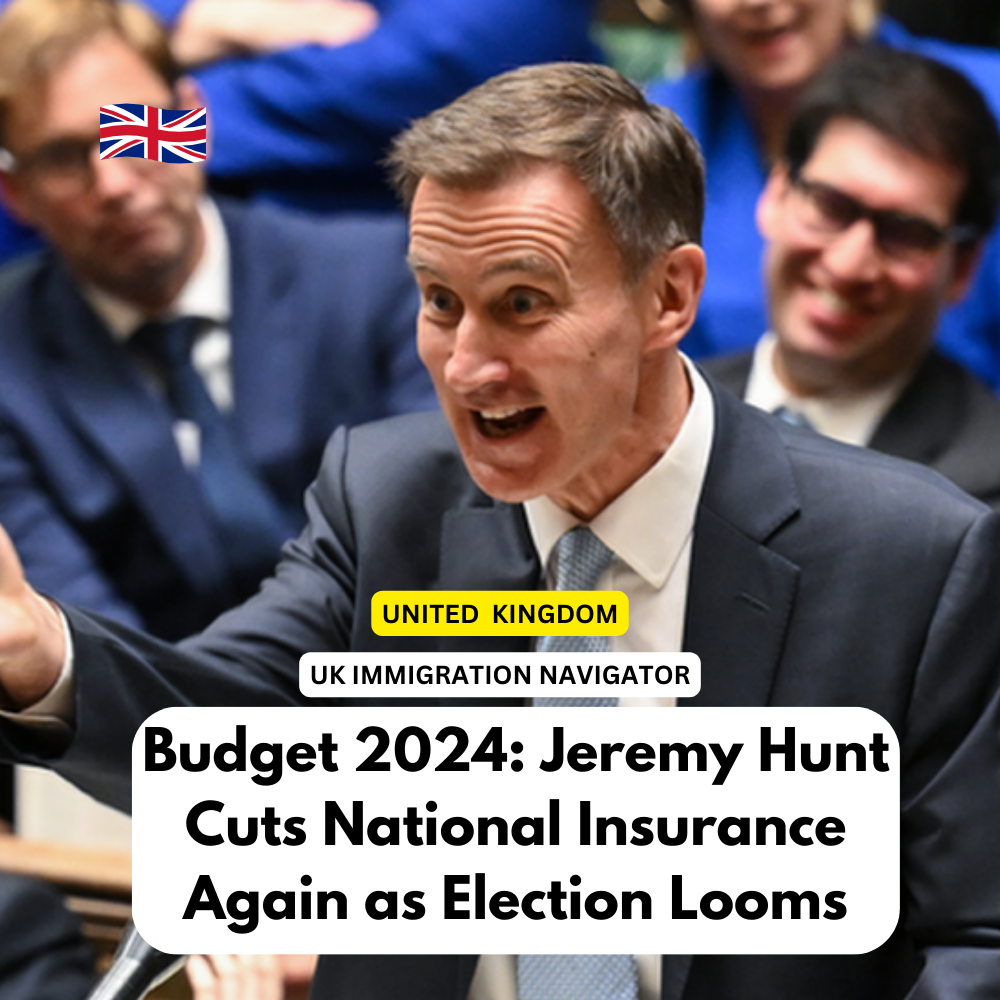In the latest budget announcement, Chancellor Jeremy Hunt Cuts National Insurance Again a series of fiscal measures aimed at reshaping the economic landscape ahead of the impending general election. Among the key highlights were significant reductions in National Insurance (NI) contributions, adjustments to tax thresholds, and the introduction of new levies. This article delves into the intricacies of the budgetary changes and their potential implications.
Table of Contents
1. The Significance of National Insurance Cuts
1.1 The Second Round of Reductions
Jeremy Hunt’s decision to slash National Insurance by 2p marks the second such reduction within a year. This move is positioned as a strategic attempt to alleviate financial burdens on workers and stimulate economic activity.
1.2 Fairness in Taxation
Advocates argue that reducing NI contributes to a fairer tax system, redistributing the burden away from employees and self-employed individuals. It aims to inject more disposable income into households, thereby fostering consumer spending and economic growth.

Critics highlight disparities in benefit distribution, with higher-income brackets experiencing marginal changes while lower-income segments face heightened financial strain.
2. Political Dynamics and Criticisms
2.1 Labour’s Response
The opposition, particularly the Labour Party, has criticized the NI cuts as a deceptive maneuver. They argue that while reducing NI may offer temporary relief, freezes on tax thresholds and other fiscal policies counteract its benefits.
2.2 Skepticism and Public Perception
Despite efforts to bolster the Conservative Party’s standing in pre-election polls, skepticism remains prevalent. Many view the tax cuts as politically motivated gestures rather than genuine economic remedies.
3. Impact on Household Finances
3.1 Relief for Middle-Income Earners
For individuals earning between £26,000 and £60,000, the combined effect of NI cuts and adjusted tax thresholds translates to financial gains. However, those on lower incomes may not reap significant benefits.
3.2 Uneven Distribution of Benefits
4. Long-term Fiscal Strategy
4.1 Abolition of National Insurance
Jeremy Hunt’s long-term vision includes the eventual abolition of National Insurance. However, the feasibility of such a measure hinges on economic stability and fiscal sustainability.
4.2 Consultations on Taxation Models
Proposals to transition to household-based income assessments underscore efforts to modernize taxation frameworks. This shift aims to rectify disparities in benefit entitlements based on individual earnings.
5. Economic Projections and Election Timing
5.1 Economic Outlook
Despite recent economic downturns, forecasts anticipate a rebound in growth over the next few years. Factors such as inflation stabilization contribute to a cautiously optimistic outlook.
5.2 Strategic Election Timing
Speculation surrounds the timing of the general election, with indications suggesting a potential delay until economic conditions show further improvement. This strategic maneuver aims to capitalize on positive economic indicators for political gain.
6. Additional Fiscal Measures
6.1 Welfare Extensions
Extensions to welfare programs, such as the Household Support Fund, reflect ongoing efforts to mitigate the impacts of rising living costs on vulnerable populations.
6.2 Tax Adjustments and Levies
Introduction of new levies on vaping products and adjustments to tobacco duty underscore efforts to diversify revenue streams and address public health concerns.
7. Criticisms and Controversies
7.1 Opposition Response
Criticism from opposition leaders and dissenting voices within the Conservative Party highlights underlying tensions and ideological differences regarding fiscal policy.
7.2 Industry Backlash
Certain fiscal measures, such as the extension of windfall taxes on energy firms, have elicited backlash from industry stakeholders and political figures alike.
8. Future Policy Directions
8.1 Fiscal Sustainability
Balancing fiscal stimuli with long-term sustainability remains a paramount concern for policymakers. Strategies to bolster economic resilience while addressing social inequalities are pivotal for future policy formulation.
8.2 Technological Innovations
Investments in technological advancements, particularly within healthcare and public services, aim to enhance efficiency and service delivery while optimizing resource allocation.
Conclusion
Jeremy Hunt’s budget for 2024 reflects a delicate balancing act between short-term economic stimuli and long-term fiscal prudence. While NI cuts and welfare extensions offer immediate relief, concerns persist regarding their sustainability and equitable distribution of benefits. As political maneuvering converges with economic imperatives, the trajectory of fiscal policy will shape the nation’s socioeconomic landscape in the years to come.
FAQs
1. Will the NI cuts benefit all taxpayers equally?
- While NI cuts provide relief for certain income brackets, disparities exist, particularly for lower-income earners.
2. What are the implications of transitioning to household-based taxation?
- Household-based taxation aims to rectify inequities in benefit distribution based on individual earnings, fostering greater fairness in the tax system.
3. How might industry stakeholders respond to fiscal measures such as windfall taxes?
- Industry backlash against certain fiscal measures underscores tensions between regulatory interventions and economic interests.
4. What factors influence the timing of the general election?
- Strategic considerations, including economic indicators and political dynamics, play a pivotal role in determining the optimal timing for a general election.
5. How do technological innovations contribute to fiscal policy objectives?
- Investments in technology aim to enhance efficiency and service delivery within public services, aligning with broader fiscal policy goals.



